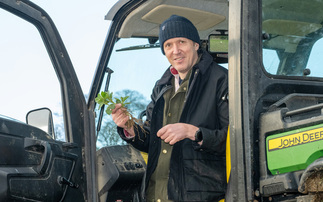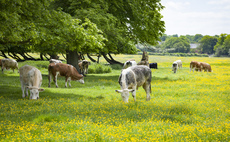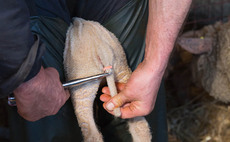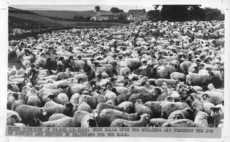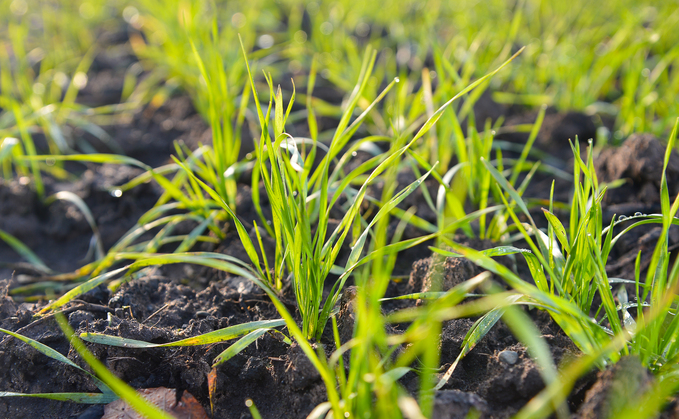
Precision breeding of crops could lead to a reduction in pesticide use, says Defra
New precision breeding technology to increase food production, reduce costs to farmers and allow drought and disease resistant crops to be grown will be brought forward under new laws, the Government announced today (September 30).
Using such technologies as gene editing on plants, precision breeding will enable the development of crops that are more nutritious, resistant to pests and disease, resilient to climate change and more beneficial to the environment.
The measures will also reduce the use of pesticides, saving the important pollinators that are so vital to our ecosystem and promoting nature recovery. Additional benefits include boosting investment into the sector, supporting Britain's food security, increasing food production and reducing costs for farmers.
READ NOW: Defra challenged over sugar beet pesticide permission
At the World Agri-Tech Innovation Summit in London, Minister for Food Security and Rural Affairs Daniel Zeichner announced the government will pass secondary legislation required to unlock the benefits of the Precision Breeding Act as soon as parliamentary time allows.
"This Government recognises that food security is national security," Farming Minister Daniel Zeichner said. "That is why today we are introducing legislation to unlock precision breeding to boost Britain's food security, support nature's recovery and protect farmers from climate shocks.
"With these measures, our agriculture sector will be at the forefront of innovation across the world."
The policy was welcomed by the Agricultural Industries Confederation. Ed Barker, head of policy and external fairs, said: "We are pleased to see this new Government progressing with the necessary legislation to mean the benefits of the landmark Precision Breeding Act can be truly realised for crop production in England.
READ NOW: Farming in climate crisis
"The potential UK food security benefits of gene-editing for crops are significant, which is why AIC will continue to work closely with the Government to help ensure this legislation is pragmatic and successful.
"It is pleasing to see genuine cross-party consensus on this important issue, with the previous Conservative-led Government first embarking on this major policy change some years ago and the new Labour Government is now seeking to advance it."
Defra said precision bred products have already started to undergo research trials, including tomatoes with high levels of vitamin D and sugar beet that is less reliant on pesticides. The legislation will enable these products to be rolled out across the country, reinforcing food security in the face of climate change, supporting our farmers and ensuring we become a world-leader in agri-food innovation.
Anger
However, Soil Association director of policy Brendan Costelloe said he was disappointed Defra had decided to push ahead with such legislation as not only did it buck public opinion but it also and posed a threat to the UK's ability to trade organic produce.
"It is vital to both consumer confidence and the organic sector that the right statutory instruments are now put in place ensure full transparency of Precision Bred Organisms (PBOs) with clear labelling to reassure and protect consumer choice, secure the organic and GMO Free sector and protect trade. We are absolutely determined to work with Defra to deliver these reassurances," he said.
There was strong opposition too from Organic Farmers & Growers with chief executive Roger Kerr saying the decision heralded a ‘troubling shift' away from championing ‘proven, sustainable farming systems'.
"We are therefore deeply concerned about the consequences of rushing the secondary legislation required to implement the Genetic Technology (Precision Breeding) Act in England for plants, without sufficient regulatory safeguards," Mr Kerr added.








